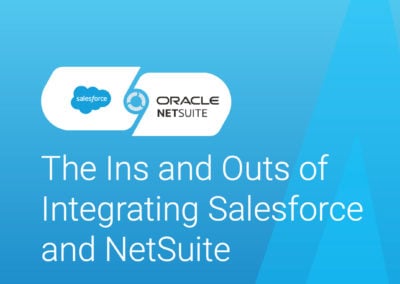Gary Burgess
Director, Infrastructure and Security
QDOBA Mexican Eats
Customer
Industry
Restaurant
Headquarters
San Diego, CALIFORNIA
Partner
Products Used
Celigo Integrator.io for dozens of process across EDI, JIRA, Atradius, Kardex, Beeyond, Akaneo, WooCommerce, Gravity Forms, SAP Business Network, Excel, FTP, DocParser, Microsoft Azure, ADP, CloudExtend Outlook
About
QDOBA is a fast-casual Mexican restaurant with more than 740 locations in the U.S. and Canada. Committed to bringing flavor to people’s lives, QDOBA uses ingredients freshly prepared in-house by hand throughout the day to create delicious menu options. Guests can experience QDOBA’s delicious flavors by enjoying one of its chef-crafted signature eats for convenience and ease, or by creating their own burritos, bowls, tacos, quesadillas, nachos, and salads to suit their personal tastes and cravings.
For four years running, QDOBA has been voted the “Best Fast Casual Restaurant” as part of the USA Today 10 Best Readers’ Choice Awards.
The Challenge
After spinning off from parent Jack in the Box, QDOBA replaced its legacy ERP with NetSuite to manage its 700 stores and support its fast growth. At the same time, the company brought in Boomi as its iPaaS.
For the pace at which QDOBA was moving, the IT team could not automate certain processes fast enough with Boomi.
“It sometimes would take weeks for my team to figure out even where to start,” said Gary Burgess, Director of Infrastructure and Security. “Everything required training. And it was very expensive to find people who could understand the platform.”
More concerningly, the team didn’t have the visibility they need when errors occurred, which were costly and time-consuming to resolve.
“We simply didn’t have a good way to resolve errors within the Boomi UI,” said Burgess. “For example, if a restaurant closed and we had to deactivate it from our systems, or if Boomi only brought in part of a journal entry, errors would come up. But it wouldn’t just give me the error, it would spit out all the errors into a file. So I had to go to the server, pull the file, work with the business user to figure out what the problem is, fix the file, put it back in the server, and rerun the job.
“It definitely caused headaches, and my team had to be involved to resolve it. It was a consistent problem that could take several hours a day. I had a folder on the desktop of my computer just for Boomi retract errors,” added Burgess.
After two years, the company decided to look some a more scalable solution.
“
”
The Solution
QDOBA ultimately decided on using Celigo to replace Boomi as its iPaaS. They chose it because Celigo’s feature set, usability, the ability to handle errors within the user interface, and the total cost of ownership.
The company’s first goal was to replace the existing integrations with Celigo. QDOBA worked with Nova Module, a Celigo partner, to help with the implementation. This included a combination of flat files from multiple vendors, some homegrown databases, dozens of applications such as Ultipro, Ecova, and Cintas, and complex files with financial and statistical journal entries with over 18,000 lines across multiple subsidiaries.
“Our process with Celigo splits up the files, and we process those breakdowns into the server and run additional flows to grab each one of them into NetSuite,” said Burgess.
The company is now looking at new opportunities for automations via API integrations across multiple back-end systems such as its restaurants’ POS and payroll systems.
Bottomline
Today, QDOBA is already doing nearly one million transactions with Celigo across dozens of applications on a monthly basis. Best of all, the company has been able to do so in a way that enables less technical users to build and maintain these integrations.
“Coming from the ecommerce world, I call it the Shopify Effect,” said Burgess.
“Celigo is like Shopify: very powerful, but very intuitive. Everything is in one place. It looks nice, it is easy to use, and it keeps getting better.”
“Some of the integrations that would take weeks with Boomi take me 45 minutes with Celigo,” he added. “I come from an operations background, so I focus on function. Instead of spinning up custom things like we used to, we’re now leveraging a platform that people can use.”
“We just hired a new Business Systems Admin, and I could walk her through Celigo, and by her third day, she got it.”
One of the biggest impacts QDOBA has experienced is the ability to manage errors at scale.
“Celigo has allowed me to hand off some of the error-handling to the experts in each department. Instead of basically having IT do it for them for two years, they can go into the Celigo platform and fix it themselves.
Ultimately, Celigo has proven to be a cost-effective and scalable solution for the fast-growing company.
“Boomi was twice as expensive, for sure,” said Burgess. “With platform alone, for example, our Olo endpoint was a $40,000 upgrade with Boomi, but it was included with Celigo. And getting help from technical people who understood Boomi was very expensive.”
“Celigo was a no-brainer for QDOBA. Dollar for dollar, you get more with the Celigo platform. And when you add the fact that it is easier to use, there’s more scalability for us with Celigo,” added Burgess.



